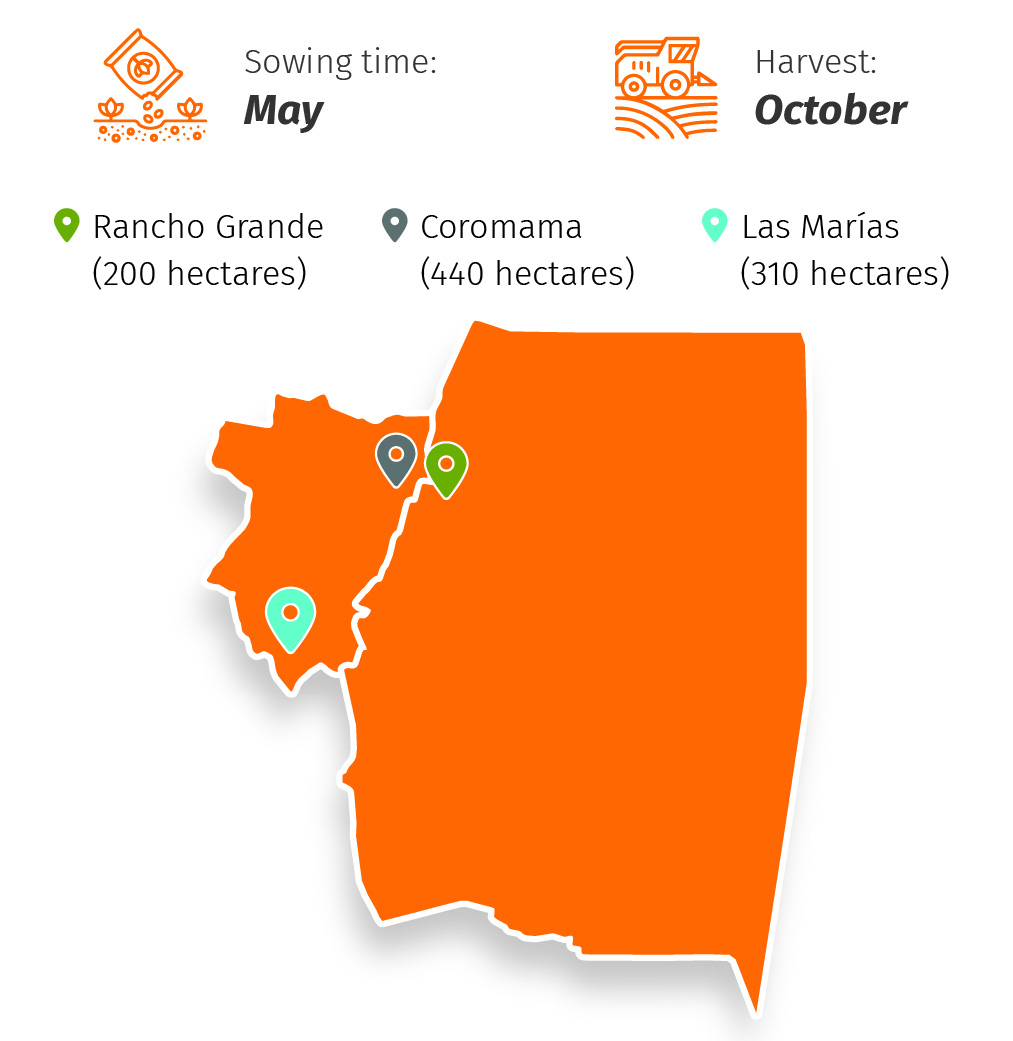We Added Rapeseed to Our Crop Portfolio
Download the articleViluco has harvested rapeseed crops for the first time, as an option for production diversification and agricultural rotation, and to attract new market opportunities.
Rapeseed is a herbaceous plant whose seeds can provide oil which is used as raw material in the food industry to produce cooking oils, margarines and mayonnaises. In addition, unlike in Argentina, where we use soybeans, it is used in Europe to produce biodiesel. Rapeseeds are twice richer in oil in comparison with soybeans and they are more efficient when it comes to transforming into biodiesel.
As a matter of fact, Viluco’s rapeseed exploitation is meant for export in order to supply the demand of the European industry.
The Challenges of a New Crop
The incorporation of this crop poses new challenges to Viluco when it comes to its implementation in northwestern Argentina.
“Rapeseed is different from wheat or chickpeas. Its seed is really small and this caused some difficulties when sowing due to the type of technology in our machines. In addition, we had to face many situations during the harvest period since, due to its size and specific characteristics, it is lost when it is loaded in the machines”, says Ramiro Aznar, Agriculture Manager at Viluco.

Insights
We managed to add a new crop to our portfolio and got new agronomic insights. The results during the first year with this crop were diverse. Our crop yields were between 300 and 2,200 kg/ha, depending on the environment, water availability and harvest management.

Benefits of Rapeseed
Apart from being a profitable crop, rapeseed contributes to agricultural rotation in winter. Introducing this kind of crop increases diversity and brings important benefits to soil, contributing to sustainable practices.
In Coromama, particularly, it is used to control nematode plagues, which affect the crops at the establishment, thus its use brings a great benefit. Such verified nematicide effect of rapeseed enables us to control such bugs and replace the use of agro-chemicals.
“We expanded our product portfolio to select the most suitable crops every year, taking into consideration the specific characteristics of the soil as well as the climate variables. In addition, by analysing market trends, we chose the most profitable crops based on the global supply and demand”, Pablo Cianci, Agriculture and Livestock Farming CEO.
Outlook
Humidity is the key variable since it defines the possibility to sow winter crops. In this opportunity, we carried out rainfed agriculture at several establishments and we also planted rapeseed in 180 hectares under irrigation at Las Marías Establishment. The results will be analysed in order to consider the possibility of sowing rapeseed in a limited area every year, regardless of the humidity characteristics.

Ramiro Aznar
Agriculture Manager at Viluco

Pablo Cianci
Agriculture and Livestock Farming CEO

